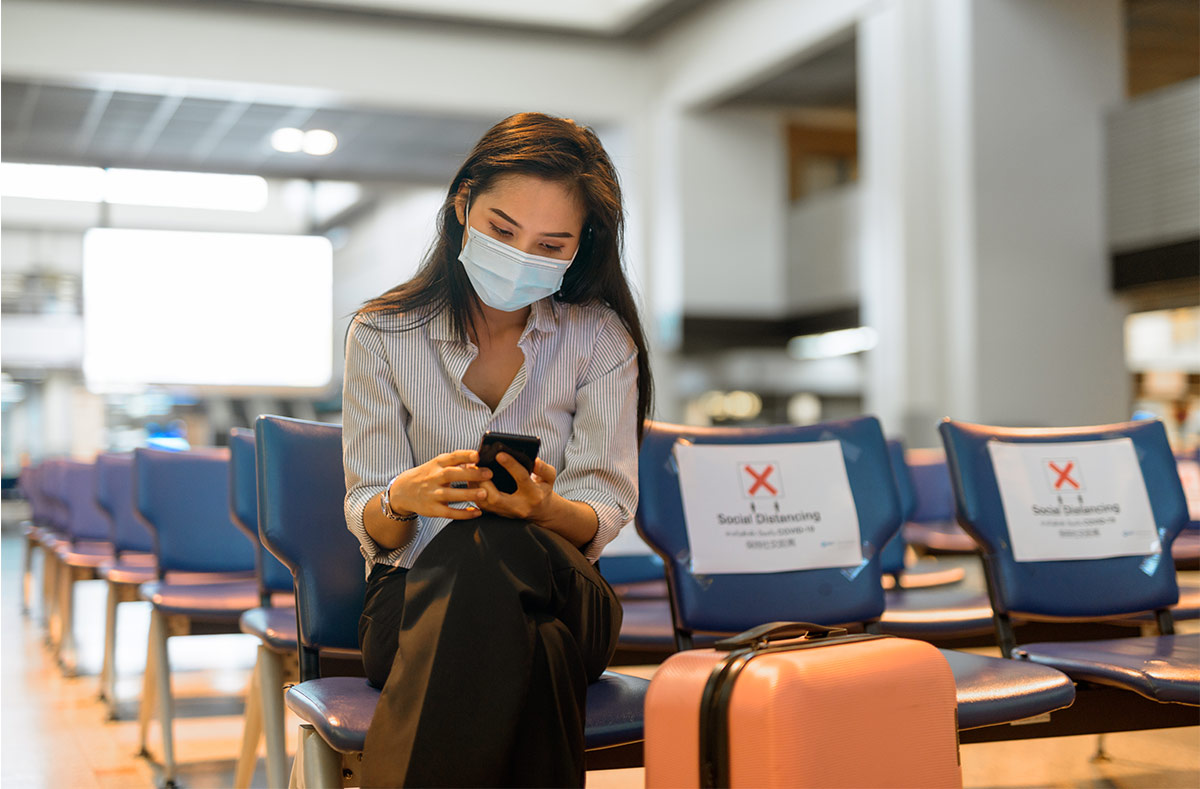Tourism is one of the sectors that was hardest hit by the COVID-19 pandemic. With countries implementing lockdowns and airport shutdowns, industries related to travel, hospitality and tourism have been struggling. Current estimates show that international tourism arrival this year could decline by 58 percent to 78 percent.1 But what should be done? Should airports remain shut to help protect local communities or should airports be reopened and risk the spread of infection? As tourism is labor-intensive and a high proportion of jobs are held by women,2 what can governments do to keep this inclusive sector alive? The answer is not so straightforward. Investing better in health could be an answer.
To understand the implications of decline in tourism activity, this study focuses on 40 economies where the contribution of tourism to their GDP is 4 percent or higher.
Economies Dependent on Tourism Face Bigger Economic Shocks
Economies dependent on tourism face the biggest economic shocks from the COVID-19 pandemic. The average growth rate3 for the 40 economies as a result of the pandemic is expected to be -4 percent, but for those highly dependent on tourism, it is -7 percent (Figure 1). Small island economies like the Maldives, Antigua and Barbuda, and St. Lucia are expected to be hardest hit. Although the growth figures are expected to rebound in 2021, the uncertainty of the pandemic could mean that they might face economic losses next year too. Under such scenario, these economies should focus on how to reopen and promote tourism while adapting to the new normal.
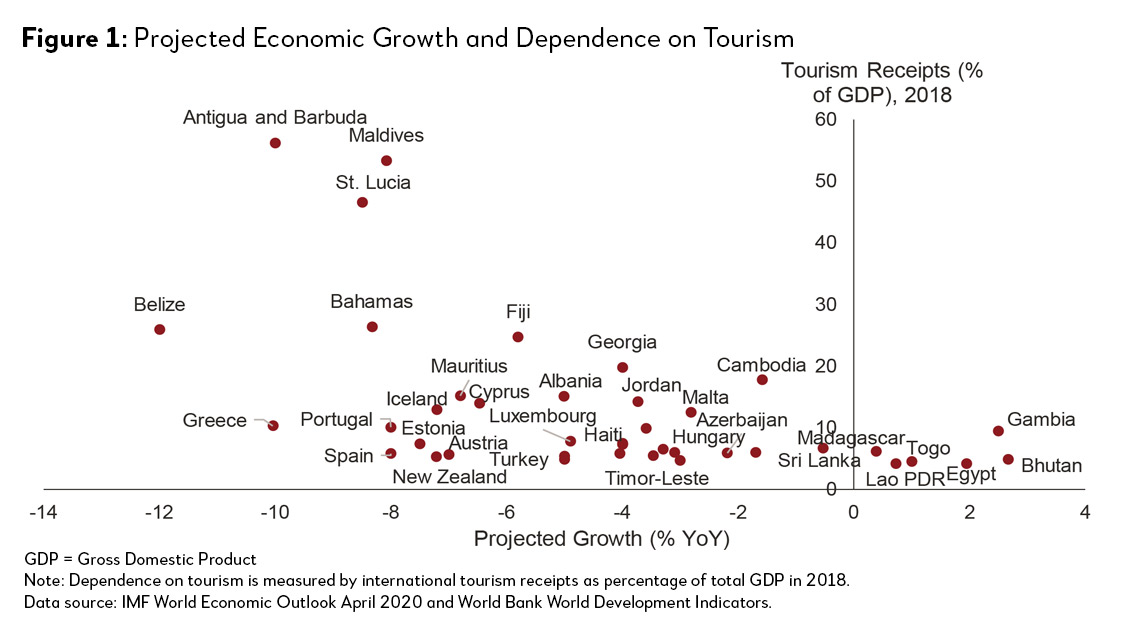
Healthcare as a Critical Economic Sector
For many of these economies, there is no easy way to achieve economic rebalancing away from tourism. How countries go on and about—“live with the virus”—will be critical for their economic well-being in the years ahead. This is where health investment as an enabler of tourism becomes important. To be clear, this is not to advocate health tourism, but rather in investing in healthcare infrastructure so that the travel-related sectors can restart safely.
Based on Global Health Security (GHS) Index data, most countries are not well prepared to deal with a pandemic.4 Countries with a larger tourism contribution to GDP need to ramp up their health infrastructure to make tourism safer. We can observe that countries that are most dependent on tourism have low health index scores (Figure 2). The GHS Index is especially low for small island countries. More than 25 percent of the economies in this study have a GHS index score of 40 or lower, and 70 percent have a score of lower than 50.
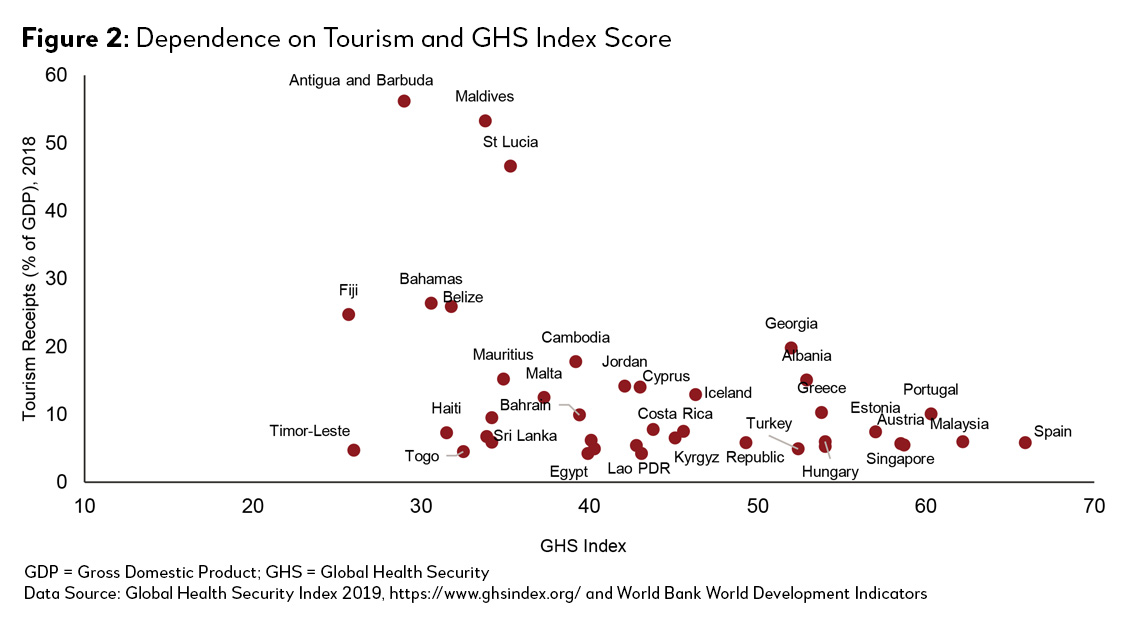
It is likely that there won’t be a perfect medical solution for years to come; although detection, treatments, social distancing measures, together with a possibility of vaccine, continue to improve health outcomes with regards to COVID-19. This is where countries need to invest in healthcare, especially those depending on strong international traffic flows such as tourism. For these economies, healthcare is an economic sector, not just a social one.
From Figure 3, we could observe that the average detection and response scores vary across regions. Except for Europe and Central Asia, the average detection scores for all regions are below 50; and for all regions, the average response score is 50.5 Countries, on average, should be improving their response to COVID-19 and be prepared to deal with other pandemics.
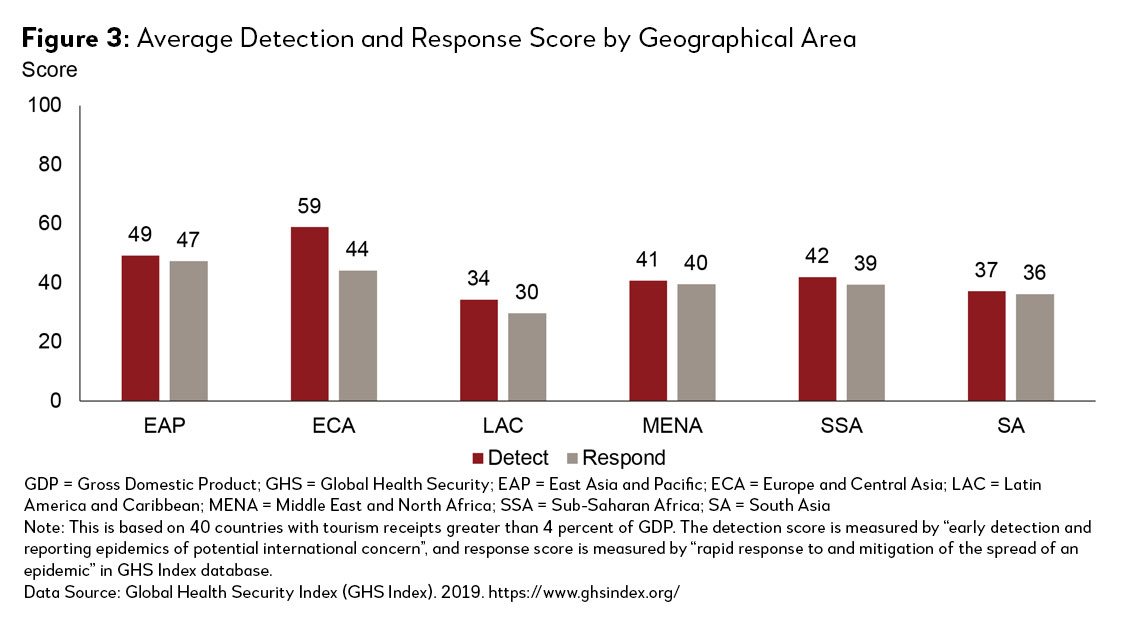
However, we observe that only few countries are taking the route of increasing their investment in health (Figure 4). Out of the 40 countries surveyed, only six countries have increased their health investment, as of July 12, 2020, by 1 percent of GDP or more.6 Thirteen countries have not increased any investment in health whereas Togo and Haiti are the only countries that have spent or planned to spend an additional 2 percent or more of their GDPs on health (their health system were severely underfunded before 2020).
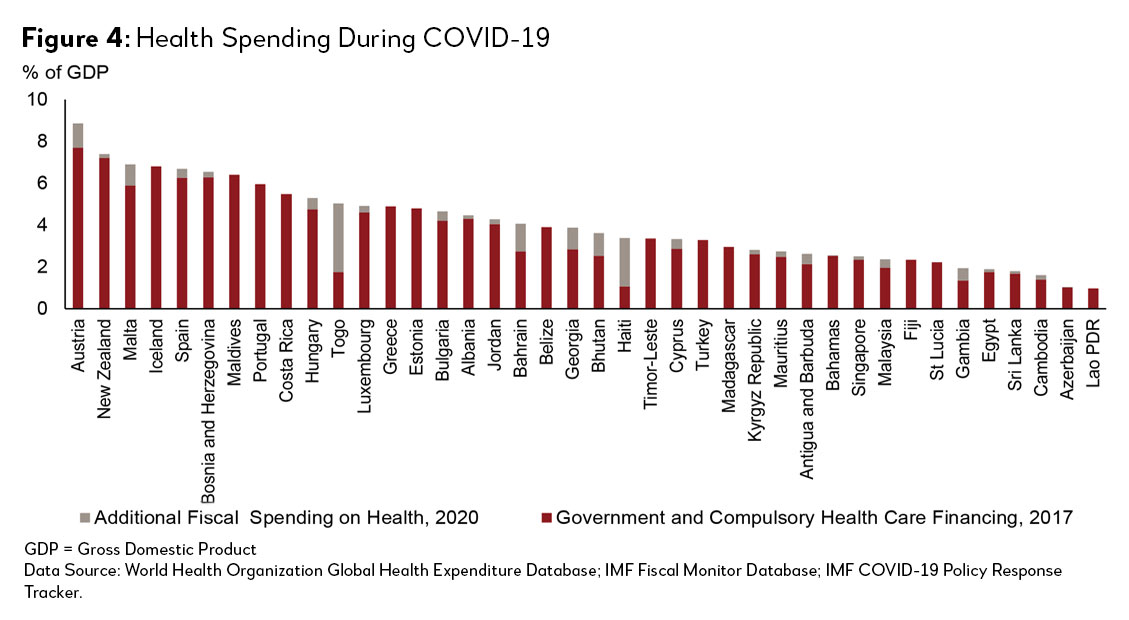
Similarly, countries most dependent on tourism7 have spent 3.64 percent of their GDP on health while the additional spending in 20208 is still low (0.24 percent), on average.
Healthcare Measures Critical to Reopening Economies
For the immediate and short term, governments should prioritize increasing investments on testing and contact tracing, (including mobile health applications that can enhance contact tracing). Health authorities could work with the tourism sector to ensure that the hospitality industry is properly equipped to deal with lower-level health issues. Even travel facilities, like airports and hotels, will have to put in place proper healthcare provisions.
In the long term, governments should support the building, upgrading and accreditation of healthcare facilities, capacity building of medical personnel and support staff, and promotion of measures to ensure the availability and access to quality medicines and diagnostic equipment so that those who need medical assistance can avail of early diagnosis and quality treatment. These upgrades could help send a strong signal to tourists that they would be taken care of if any health adversities were to occur.
1 The World Tourism Organization (UNWTO) estimation, available at https://www.unwto.org/international-tourism-and-covid-19.
2 UNCTAD. 2020. COVID-19 and Tourism: Assessing the Economic Consequences.
3 Defined as international tourism receipts accounting for greater than 15 percent of GDP.
4 The Global Health Security (GHS) Index is the first comprehensive assessment and benchmarking of health security and related capabilities across the 195 countries that make up the States Parties to the International Health Regulations.
5 This is based on the 40 countries with tourism receipts greater than 4 percent of GDP.
6 AIIB staff’s calculation based on IMF’s policy tracker as of July 12, 2020. Only fiscal measures that are directly addressed to health-related spending are counted as a health investment.
7 Defined as international tourism receipts accounting for over 10 percent of GDP.
8 From Jan. 1 to July 12, 2020.

